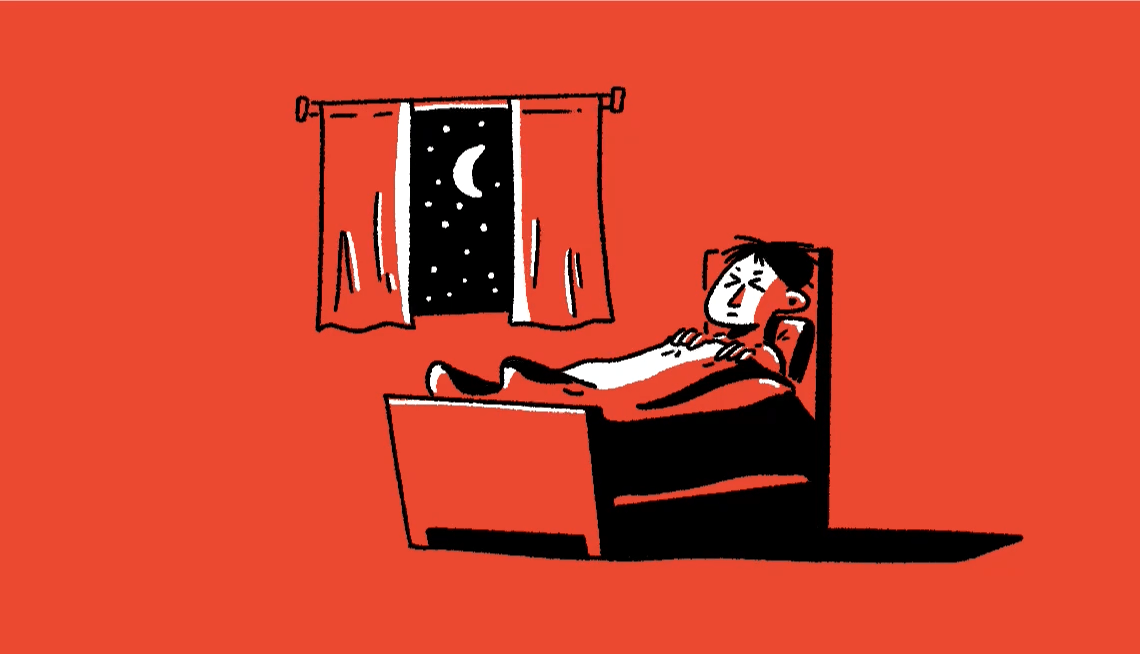AARP Hearing Center


I fall asleep just fine, but I always wake up in the middle of the night and have trouble getting back to sleep. What are the top things you suggest that I do?
Many of my patients complain that they have difficulty falling asleep, or like you, staying asleep. While it’s normal to wake several times during the night and quickly fall back to sleep, according to a new AARP survey, 70 percent of adults 40 and older reported having trouble sleeping. Of those who reported sleep difficulties, nearly 60 percent said they had trouble staying asleep.
Sleeplessness can take its toll. Chronic bad nights can make us unfocused and irritable, as well as increase the risk of dementia, type 2 diabetes, heart disease, obesity and other conditions. So, let’s investigate why you’re waking and staying awake, and then use strategies that can help you fall back to sleep.


Ask Dr. Adam
Adam B. Rosenbluth, M.D., is an internist and cardiologist in New York City. Each Monday, he’ll weigh in on your questions about how to make your body work better for you. His AARP book will be published in 2027. Join in on the conversation on social media @dradamrosenbluth to learn to move the needle on your personal health in an achievable way.
When someone says, “Adam, I wake up at 2 or 3 a.m. and can’t fall back to sleep,” the first thing I ask is, “Did you have this problem six months ago?” If they say “No,” I’ll ask, “Well then, what’s changed?” The cause might be physical.
Sometimes a patient has worsening arthritis with pain that wakes them up and prevents them from falling back asleep. Or they may have digestive issues like acid reflux or IBS symptoms that act up several hours after dinner. Men with prostate problems wake frequently with the urge to urinate, while women in menopause often have hormonal changes that bring on night sweats.
Your doctor can help you deal with these conditions with medication and suggested lifestyle changes. That’s why it’s so important to let your health care provider know about any physical issues.
Alternately, the cause could be emotional. I also ask my patients if they’re feeling worried about anything. When we’re anxious, neurochemicals are released that put our brains and bodies on high alert and keep us primed for action. Counseling and medication may help lessen anxiety.
If you’re waking in the middle of the night and it’s not caused by a physical or emotional issue, I suggest you practice specific strategies to help you fall back asleep. The first step is to avoid any kind of stimulation, which means turning off the TV and putting down your electronics. Don’t look at your phone to catch up on emails or send texts, and don’t stream videos on your iPad.
Instead, slowly get out of bed, sit in a chair and read something very boring. For me, that’s poetry. You can drink a glass of warm milk if it makes you sleepy. Once you start feeling drowsy, that’s your cue to put the book down and go back to bed.





































































You Might Also Like
Understanding Fatigue: Medical Insights
Identify fatigue causes and boost your energy levelsSmart Sleep Tips for a Refreshing Morning
43 tips to help you fight those restless, endless nights and get the slumber you need.
Recommended for You